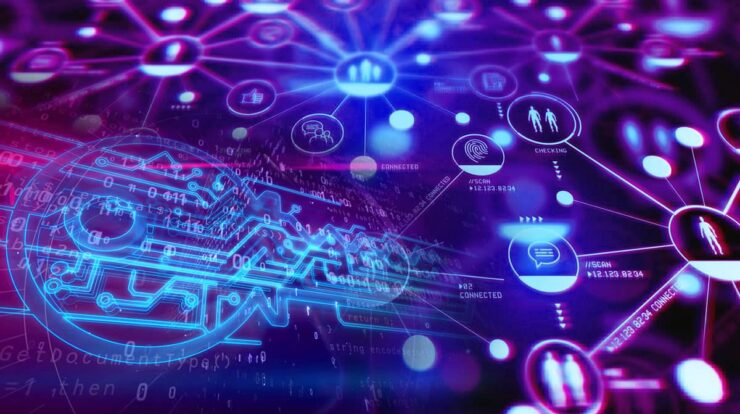
Data security and privacy are crucial in the digital era affecting individuals and organizations. The growing reliance on Learning Management Systems (LMS) for training purposes highlights the necessity of implementing data security measures. This blog post aims to delve into the significance of data security and privacy within your LMS ecosystem while also providing insights on how to establish a safe and secure learning environment.
The Importance of Data Security and Privacy in LMS
Ensuring robust data security and privacy is essential in any LMS ecosystem. Educational institutions and companies store information like data, financial records, and intellectual property within their LMS platforms; therefore, it becomes imperative to safeguard this data against unauthorized access or misuse. Breaches in data security can lead to consequences such as identity theft, financial losses, damage to reputation, and potential legal liabilities.
Additionally, maintaining user privacy is equally vital. In today’s world, users expect their personal information to remain confidential for its intended purposes. Upholding privacy standards to maintain user trust may ensure the adoption of an LMS platform like Accord software. Given the risks and consequences associated with breaches in data security and privacy, it is essential to establish strong measures that safeguard the confidentiality, integrity, and availability of data within your LMS ecosystem.
Best Practices for Ensuring Data Security and Privacy
It is vital to adopt practices and implement safeguards against threats to ensure the security and privacy of data in your LMS ecosystem. Here are some critical steps to consider:
Implement Secure Authentication: Encourage users to create unique passwords while also considering the use of factor authentication to prevent unauthorized access to the LMS. It is also advisable to update passwords for security. Additionally, consider implementing two-factor authentication as an added layer of protection.
Encrypt Data in Transit At Rest: Encryption is vital in safeguarding data during transmission between users’ devices and the LMS. Utilizing HTTPS protocols ensures that transmitted data remains encrypted. Furthermore, ensure that all stored data within databases and servers are encrypted to prevent access if a breach occurs.
Regularly Update and Patch Systems: Keeping your LMS up to date with the security patches is essential for protecting against known vulnerabilities. Monitor for any security updates from your LMS provider diligently and promptly apply them to maintain system security.
Regularly Conduct Security Audits: It is essential to schedule security audits to identify any vulnerabilities and ensure that they meet data security standards. Consider involving a security firm to audit your Learning Management System (LMS) and provide recommendations for enhancements.
Provide User Training and Promote Awareness: Educating users about the practices in data security is vital for maintaining a safe learning environment. Conduct training sessions to raise awareness about password management phishing attacks and other standard security risks. Encourage users to report any activities or potential breaches of security.
Implement Access Controls Based on Roles: Controlling access to data based on the user’s roles and responsibilities is a measure of mitigating potential security risks. By implementing role-based access controls, you can ensure that users only have access to the information for their job functions, minimizing the chances of unauthorized data exposure.
Complying with Data Protection Regulations
Apart from adopting security practices, it is crucial to adhere to data protection regulations like the General Data Protection Regulation (GDPR) and the California Consumer Privacy Act (CCPA). These regulations aim at safeguarding individuals’ privacy rights by imposing requirements on how organizations handle and protect data. To ensure compliance with these regulations, educational institutions and organizations should follow these guidelines:
- a) Before collecting and processing data within the learning management system (LMS), obtain informed consent from users.
- b) Communicate the methods of collecting, processing, and storing data within the LMS ecosystem.
- c) Empower users to control their data by providing options for deleting, correcting, and opting out of data processing activities.
- d) Implement organizational measures to safeguard personal data against unauthorized access or disclosure.
- e) Designate a Data Protection Officer (DPO). Assign someone to ensure data protection within the organization.
By adhering to these regulations, organizations not only protect the privacy rights of their users but also mitigate legal risks and potential financial penalties associated with non-compliance.
Selecting a Secure LMS Provider
When choosing an LMS provider, it is crucial to consider their commitment to data security and privacy. Look for providers that adhere to industry-recognized security standards like ISO 27001 and have a track record in safety. Inquire about their measures for securing data encryption protocols and how they handle security incidents.
Additionally, consider providers that offer hosting options in either protected data centers or cloud environments equipped with physical and logical security controls. Selecting a provider that places importance on security and privacy can significantly improve the data security of your LMS ecosystem.
To Sum Up
Data security and privacy within your LMS ecosystem are crucial for establishing trust, safeguarding information, and adhering to data protection regulations. By adopting compliance practices and choosing an LMS provider, organizations can establish a safe and protected learning environment that inspires user confidence and facilitates effective education and training endeavors.


